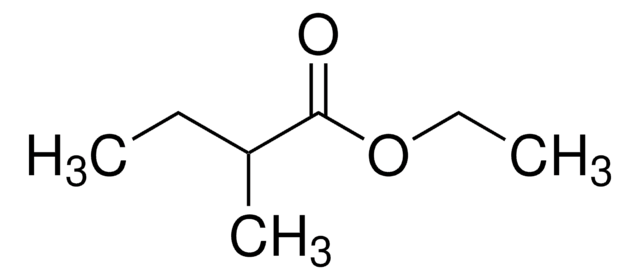309532
Sorbitol F solution
70 wt. % in H2O, Contains mainly D-sorbitol with lesser amounts of other hydrogenated oligosaccharides
Synonym(s):
D-Sorbitol
About This Item
Recommended Products
Quality Level
form
viscous liquid
concentration
70 wt. % in H2O
color
colorless
refractive index
n20/D 1.46
density
1.28 g/mL at 25 °C
SMILES string
OC[C@@H](O)[C@@H](O)[C@H](O)[C@@H](O)CO
InChI
1S/C6H14O6/c7-1-3(9)5(11)6(12)4(10)2-8/h3-12H,1-2H2/t3-,4+,5-,6-/m1/s1
InChI key
FBPFZTCFMRRESA-JGWLITMVSA-N
Looking for similar products? Visit Product Comparison Guide
Application
- The Improved Properties of Carboxymethyl Bacterial Cellulose Films with Thickening and Plasticizing.: Research demonstrates the effectiveness of sorbitol F solution in improving the mechanical and barrier properties of carboxymethyl bacterial cellulose films. This is crucial for developing advanced biodegradable packaging materials that meet environmental and performance criteria (Sun Z et al., 2022).
- Elaboration of hemicellulose-based films: Impact of the extraction process from spruce wood on the film properties.: Investigates the use of sorbitol F solution in the production of hemicellulose-based films, emphasizing its effectiveness in influencing film properties such as flexibility, water resistance, and biodegradability, key for sustainable packaging solutions (Chadni M et al., 2020).
Other Notes
Storage Class Code
10 - Combustible liquids
WGK
WGK 1
Flash Point(F)
Not applicable
Flash Point(C)
Not applicable
Personal Protective Equipment
Regulatory Listings
Regulatory Listings are mainly provided for chemical products. Only limited information can be provided here for non-chemical products. No entry means none of the components are listed. It is the user’s obligation to ensure the safe and legal use of the product.
JAN Code
309532-100ML:
309532-500ML:
309532-BULK:
309532-VAR:
Certificates of Analysis (COA)
Search for Certificates of Analysis (COA) by entering the products Lot/Batch Number. Lot and Batch Numbers can be found on a product’s label following the words ‘Lot’ or ‘Batch’.
Already Own This Product?
Find documentation for the products that you have recently purchased in the Document Library.
Customers Also Viewed
Our team of scientists has experience in all areas of research including Life Science, Material Science, Chemical Synthesis, Chromatography, Analytical and many others.
Contact Technical Service




